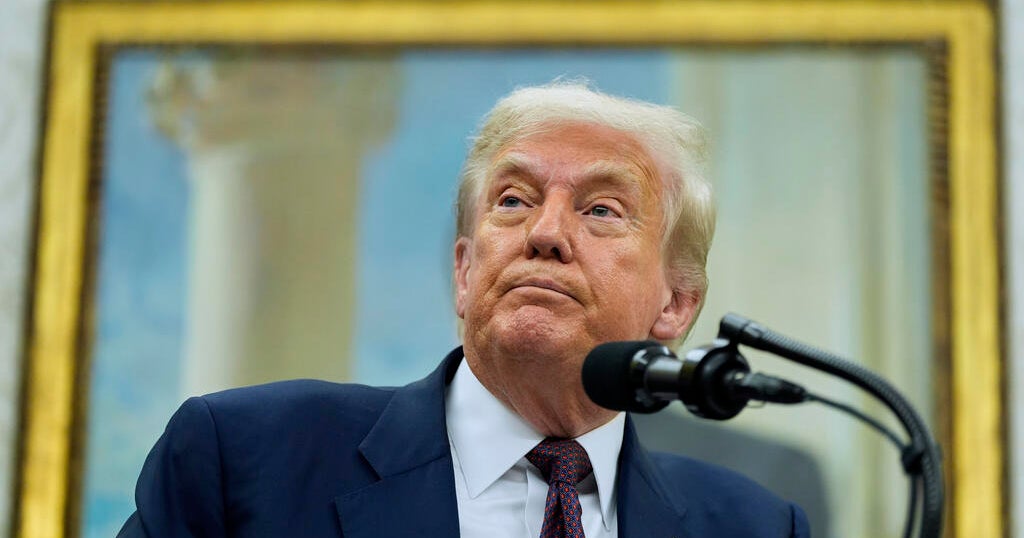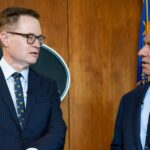In a recent and disturbing twist of events in Washington D.C., a staff member from the Department of Government Ethics (DOGE) suffered injuries in an attempted carjacking. This violent incident has once more stirred President Trump’s longstanding advocacy for a federal takeover of the governance of the U.S. capital. This isn’t the first time President Trump has voiced such a proposition; his calls have been recurrent during this year and echo his sentiments expressed during his presidential campaign.
The president voiced his frustration and determination in a recent Truth Social post, “If D.C. doesn’t get its act together, and quickly, we will have no choice but to take Federal control of the City. I am going to exert my powers, and FEDERALIZE this City.” This message clearly represents his continued discontent with the local governance of D.C., particularly in handling crime, which he has previously labeled as being in a state of chaos due to incompetent leadership.
President Trump reiterated his stance via various mediums. In public remarks and social media posts throughout the year—including notable comments in February aboard Air Force One and a commentary piece in July highlighted on major news platforms—he has consistently claimed that direct federal control is essential for restoring law and order in D.C. “We have to run D.C.,” he asserted in a statement last Wednesday. “This has to be the best run place in the country, not the worst.”
However, the pathway to federalizing the district isn’t straightforward. The 1973 Home Rule Act, which grants D.C. residents the authority to elect their municipal leaders, stands in his way. For his proposal to take effect, an act of Congress would be mandatory to overturn the Home Rule Act, making it a significantly challenging endeavor given the current political landscape. Despite retaining the power to amend or nullify D.C. laws—a power Congress exercised in 2023 to overturn a local crime bill—it is unlikely that there would be sufficient bipartisan support to repeal the Home Rule Act entirely.
President Trump has even suggested alternatives, such as assuming control over the D.C. police or deploying the National Guard to manage the city’s public safety issues. Under the Home Rule Act, there is a provision that allows the president to take control of the city’s police force during emergencies. However, this would likely face legal challenges if used without clear and justifiable reasons.
Interestingly, while the president commands the D.C. National Guard—the only unit among all states and territories that reports directly to him—such measures underscore the president’s serious considerations about intervening directly in D.C.’s affairs.
On the other side of the spectrum is crime data which, paradoxically, suggests a decrease in criminal activities within the district. Current statistics provided by D.C. police showcase a 37% drop in carjackings this year compared to 2024. Further data signals a decline in violent crime over the last 18 months, a trend seen across major cities in the U.S. The president, however, continues to focus on crime rates to justify his call for intervention.
Beyond crime, President Trump also expressed concerns about D.C.’s overall cleanliness and management of public spaces. Earlier this year, he signed an executive order establishing a task force aimed at addressing “quality of life” issues, ranging from homelessness to unsightly graffiti.
Amid these federal-city tensions, D.C. Mayor Muriel Bowser has notably been reserved in her responses to President Trump’s latest remarks. Previous confrontations during his first term marked a rocky relationship, most memorably during the 2020 protests following George Floyd’s murder. At the time, Mayor Bowser made headlines by endorsing a Black Lives Matter mural near the White House, a subtle yet bold statement against President Trump’s handling of the protests—a mural that was approved for removal earlier this year.
The topic of D.C. governance also intertwines with the broader debate over its statehood, a matter which Democrats, including Mayor Bowser, have championed to provide D.C.’s residents with congressional representation. However, as historical voting patterns and political affiliations suggest, the Republican opposition in Congress makes the prospect of D.C. becoming the 51st state a challenging pursuit.
The unfolding developments in D.C. are more than a local governance issue; they symbolize a deeper struggle over control, representation, and federalism that resonates throughout the United States. As President Trump’s proposals face scrutiny, both legal and political, the future of D.C.’s governance remains a contested battleground, reflecting broader national tensions over authority, autonomy, and governance.









